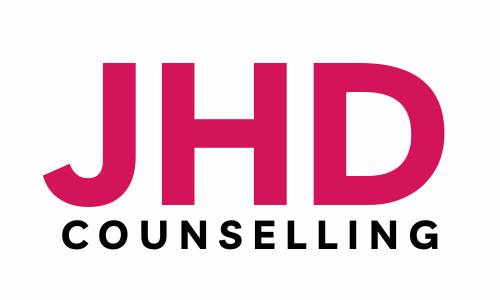Navigating Disagreements: When Fear of Confrontation Holds You Back
Disagreements are a natural part of any relationship. But when you have a fear of confrontation, even minor differences can feel overwhelming. At JHD Counselling, we understand that men, in particular, may face societal pressures to avoid expressing disagreement. Here, we'll explore strategies to navigate disagreements assertively, even with a fear of confrontation.
Why Men Might Shy Away from Disagreements:
- The "Strong and Silent" Stereotype: Traditional masculinity discourages open communication about emotions, making disagreements seem confrontational.
- Fear of Escalation: The worry that voicing disagreement will lead to anger or a blow-up can be paralyzing.
- Loss of Control: Feeling like you might "lose" the argument or be seen as weak can deter men from speaking up.
Beyond the Stereotypes: Why Disagreements Matter:
Healthy disagreements can actually strengthen relationships:
- Finding Common Ground: Openly discussing differences can lead to better understanding and compromise.
- Building Trust: Sharing your perspective honestly fosters trust and emotional intimacy.
- Growth: Healthy disagreements can lead to personal growth and a deeper connection.
Approaching Disagreements with Confidence:
- Focus on "I" Statements: Instead of accusatory "you" statements, express how you feel ("I feel frustrated when..." instead of "You always...").
- Pick Your Battles: Not every disagreement needs a full-blown discussion. Choose when to speak up and prioritize the most important issues.
- Calm Communication: Stay calm and collected, even if the other person is upset. Avoid raising your voice or using insults.
- Active Listening: Really hear the other person's perspective before responding. This shows respect and encourages open communication.
- Focus on Solutions: Shift the conversation from who's "right" to finding a solution that works for both of you.
Remember: Disagreements aren't about winning or losing. They're about building stronger connections.
Seeking Support:
At JHD Counselling, we can help you develop assertive communication skills and navigate disagreements with confidence. We offer:
- Individual therapy: Explore the roots of your fear of confrontation and develop coping mechanisms.
- Couples therapy: Learn communication tools to address disagreements constructively within your relationship.
Don't Let Fear Hold You Back:
Having a voice and expressing your needs is crucial for a healthy relationship. With the right tools and support, you can approach disagreements with confidence and build deeper connections. Contact us today to learn more about how we can help.



